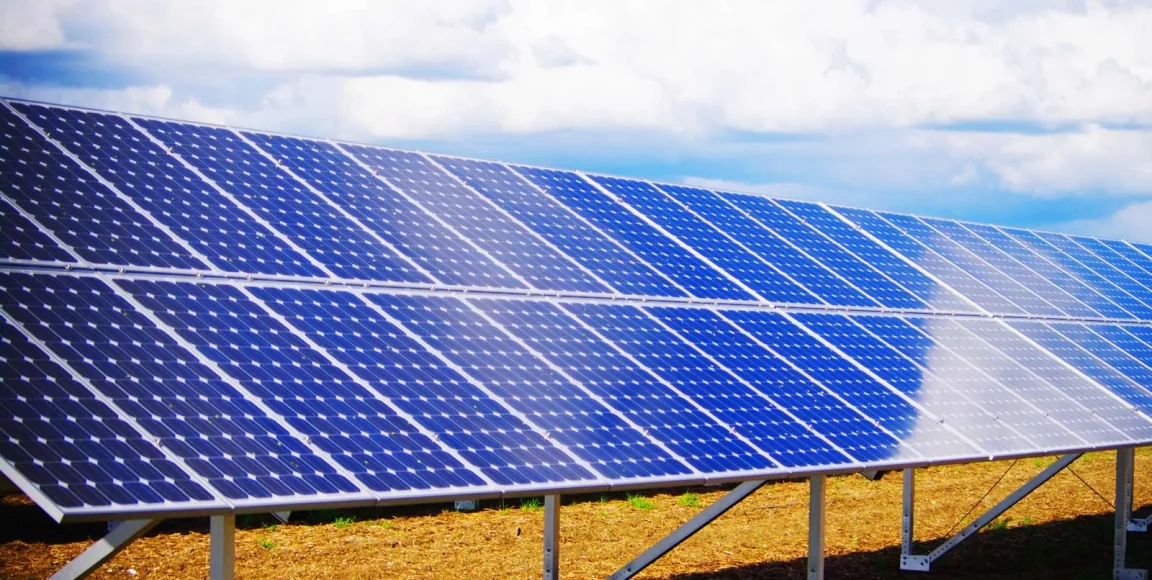As the world continues to shift towards renewable energy sources, solar power has emerged as a popular and practical option for homeowners and businesses alike. However, many people still have questions and concerns about solar panels and how they work.
In this article, we’ll explore some of the most common solar panel questions and provide answers. From installation and maintenance to cost and efficiency, we’ll cover a range of topics to help you understand the benefits and challenges of solar power.
Read on!
What Is a Solar Panel?
A solar panel is a device that converts sunlight into electricity. It is made up of multiple solar cells that are connected together. Each solar cell contains a layer of silicon and other materials that absorb photons from sunlight and release electrons, which are then captured by wires that run between the cells.
How Do Solar Panels Work?
Solar panels work by capturing photons from the sun and converting them into electrons.
These electrons are then captured by the wires in the solar panel and sent to an inverter, which converts the DC (direct current) electricity into AC (alternating current) electricity that can be used in your home or business.
What Are the Benefits of Using Solar Panels?
There are many benefits to using solar panels. First and foremost, solar panels are a clean and renewable source of energy. They do not produce any harmful emissions or pollutants, which helps to reduce the impact of climate change.
Additionally, solar panels can save you money on your electricity bills by reducing your reliance on grid electricity.
Will Solar Panels Increase the Value of My Home?
Studies have shown that homes with solar panels installed can sell for more than homes without them. This is because solar panels are viewed as a valuable asset that can save homeowners money on their energy bills and reduce their carbon footprint.
So, in addition to the environmental and financial benefits of installing solar panels, they can also be a wise investment for homeowners looking to increase the value of their property.
How Much Energy Can Solar Panels Generate?
The amount of energy that solar panels can generate depends on several factors, including:
- Panel size
- Panel efficiency
- Amount of sunlight
- Panel angle and orientation
Generally, a standard 10 kW solar panel system can generate around 10,000 kWh of electricity per year, which is enough to power an average household.
How Long Do Solar Panels Last?
Solar panels are designed to last for 25-30 years or more. They require little maintenance, and the only part that needs to be replaced occasionally is the inverter.
Most solar panel manufacturers offer a warranty of at least 25 years on their panels, which guarantees their performance for at least that length of time.
Why Is Solar Power Not Widely Used?
Despite the growing popularity of solar power, there are still some obstacles that prevent it from being more widely used. One of the main challenges is the upfront cost of installing solar panels, which can be prohibitive for many homeowners and businesses.
Additionally, some areas may not receive enough sunlight to make solar power a viable option, and some people may be hesitant to invest in solar panels due to uncertainty about their effectiveness and reliability.
However, with the continued development of new technology and the availability of incentives and financing options, solar power is becoming an increasingly accessible and practical option for many people.
How Much Do Solar Panels Cost?
The cost is one of the most common and important solar panel questions people usually ask. The cost of solar panels can vary depending on several factors, including the following:
- Panel size
- Panel efficiency
- Installation cost
- Additional equipment cost
On average, a 5 kW solar panel system can cost anywhere from $10,000 to $25,000, depending on the factors mentioned above.
Can I Finance Solar Panel Installations?
If you’re interested in installing solar panels but don’t have the funds to pay for the installation upfront, financing options are available. Many solar panel installation companies offer financing plans that allow you to pay for your panels over time, often with little to no money down.
Some states and local governments also offer low-interest loans or other financing incentives for homeowners and businesses that install solar panels. Financing can be a great option for those looking to save money on their energy bills without having to pay a large upfront cost.
Do I Need Special Equipment to Use Solar Panels?
To use solar panels, you will need an inverter to convert the DC electricity generated by the panels into AC electricity that can be used in your home or business.
Additionally, if you want to store excess energy generated by the panels, you will need a battery storage system. However, these are optional and not required to use solar panels.
Can I Use Solar Panels During a Power Outage?
If you have a battery storage system installed, you can use solar panels during a power outage. The battery will store excess energy generated by the panels during the day and allow you to use them at night or during an outage.
However, if you do not have a battery storage system, you will not be able to use solar panels during a power outage as they are designed to be connected to the grid.
How Do I Maintain My Solar Panels?
Solar panels require very little maintenance. The only thing that needs to be done is to keep them clean and free of debris. This can be done by using a soft brush or cloth to wipe down the panels or by using a hose to rinse them off.
It is also important to check the panels periodically for any damage or defects, such as cracks or broken cells. If you notice any damage, it is best to contact a professional to have the panels repaired or replaced.
What Happens if a Solar Panel Gets Damaged?
If a solar panel gets damaged, it can affect its efficiency and performance. Common causes of damage include:
- Severe weather
- Falling debris
- Faulty installation
Depending on the severity of the damage, the panel may need to be repaired or replaced. It’s important to have solar panels inspected periodically to check for any damage or defects.
If you notice any issues with your panels, it’s best to contact a professional to have them repaired or replaced as soon as possible to prevent further damage and ensure optimal performance.
What Happens to Solar Panels at the End of Their Life?
At the end of their life, solar panels can be recycled. Most solar panels are made up of glass, metal, and silicon, which can be recycled and used in the production of new solar panels or other products.
Many solar panel manufacturers offer recycling programs for their panels, which makes it easy to dispose of them responsibly.
Are Solar Panels Suitable for All Types of Roofs?
Solar panels can be installed on most types of roofs, including flat and sloped roofs. However, the orientation and angle of the panels may need to be adjusted depending on the type of roof.
For example, on a flat roof, the panels may need to be tilted to ensure they receive enough sunlight. It is best to consult with a professional installer to determine the best placement for your solar panels based on your roof type and location.
Are Solar Panels Effective in All Locations?
Solar panels are most effective in areas with abundant sunlight. However, even in regions with less sunshine, solar panels can still generate a significant amount of electricity.
Advances in technology have also improved the efficiency of solar panels, allowing them to produce electricity even under cloudy or partially shaded conditions. It’s important to consider your location and the amount of sunlight you receive when assessing the viability of solar panels for your specific situation.
How Much Space Do I Need for Solar Panels?
The amount of space you need for solar panels depends on the size and efficiency of the panels.
On average, a standard 10 kW solar panel system will require around 600-700 square feet of space. However, this can vary depending on the specific panels you choose and the layout of your roof or property.
What Are the Different Types of Solar Panels?
There are several different types of solar panels, including:
- Monocrystalline
- Polycrystalline
- Thin-film
Monocrystalline panels are the most efficient and the most expensive, while polycrystalline panels are slightly less efficient but more affordable.
Thin-film panels are the least efficient but the most flexible and lightweight, making them ideal for certain applications, such as portable solar panels.
Can I Install Solar Panels Myself?
It is possible to install solar panels yourself, but it is not recommended unless you have experience with electrical and roofing work. Installing solar panels requires knowledge of electrical wiring, roofing, and safety regulations and should only be done by a licensed professional.
Additionally, installing solar panels yourself can void any warranties or insurance coverage you may have, which could end up costing you more in the long run.
What Is Net Metering?
Net metering is a system that allows you to receive credit for any excess electricity generated by your solar panels that are sent back to the grid.
When your solar panels generate more electricity than you use, the excess is sent back to the grid and credited to your account. This credit can then be used to offset any electricity you use from the grid when your solar panels are not generating enough power.
What Is the Return on Investment for Solar Panels?
The return on investment for solar panels can vary depending on a number of factors, including the cost of electricity in your area, the size and efficiency of the panels, and the amount of sunlight your panels receive.
On average, homeowners can expect to see a return on investment of around 20% over the lifespan of their solar panels.
Are Solar Panels Weather-Resistant?
Solar panels are designed to withstand various weather conditions, including rain, wind, and snow. However, it is important to choose high-quality panels and have them installed by a professional to ensure they can withstand the weather conditions in your area.
Proper maintenance and regular inspection are also crucial to ensuring the panels remain weather-resistant throughout their lifespan.
What Happens to Solar Panels at the End of Their Lifespan?
Solar panels are designed to be recyclable, and their components can be repurposed to make new solar panels. This recycling process helps reduce waste and supports the growth of the renewable energy industry.
It’s important to choose high-quality panels and have them installed by a professional to ensure they last as long as possible and can be safely recycled at the end of their lifespan.
Can I Take My Solar Panels With Me if I Move?
The answer depends on a variety of factors, including the type of solar panel installation you have and whether you own or lease the panels. In some cases, it may be possible to take your solar panels with you, while in others, it may be more practical to leave them behind for the new owner or to sell them separately.
It’s important to consider these factors and speak with a professional before making a decision about your solar panels when moving.
Where to Find a Reputable Solar Roof Company?
To ensure that you’re getting high-quality panels and installation services, you should look for a company that has experience with solar installations and a strong reputation in the industry.
You can start by searching online for a solar roof company in your area or check it out on online directories. You can also ask for recommendations from friends and family members who have already installed solar panels.
All About the Common Solar Panel Questions and Answers
Overall, understanding solar panel questions and answers can be a useful tool when beginning the process of switching to solar energy.
Asking questions is a great way to learn more and feel empowered to make the right decisions. We hope this article has provided helpful insight and has motivated you to get started today!
For more helpful articles, check out the rest of our website.



